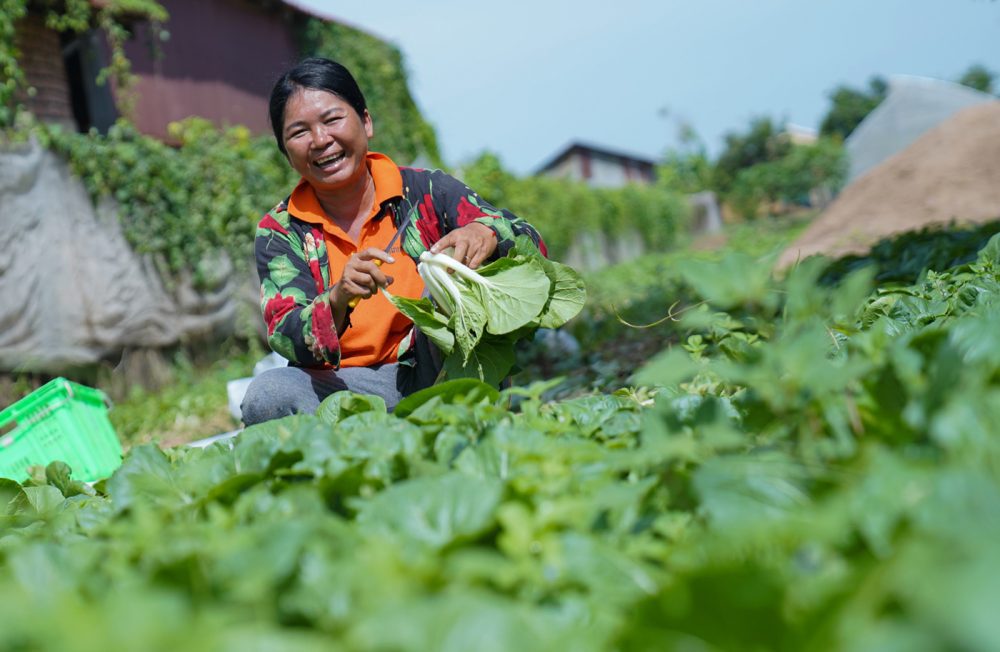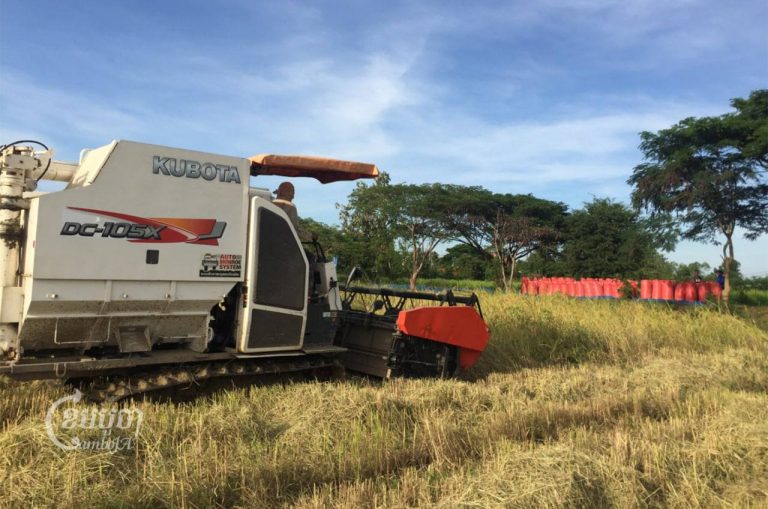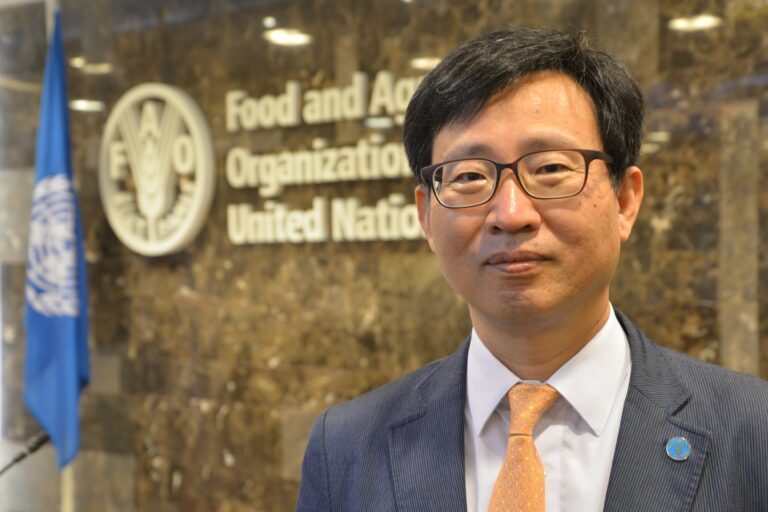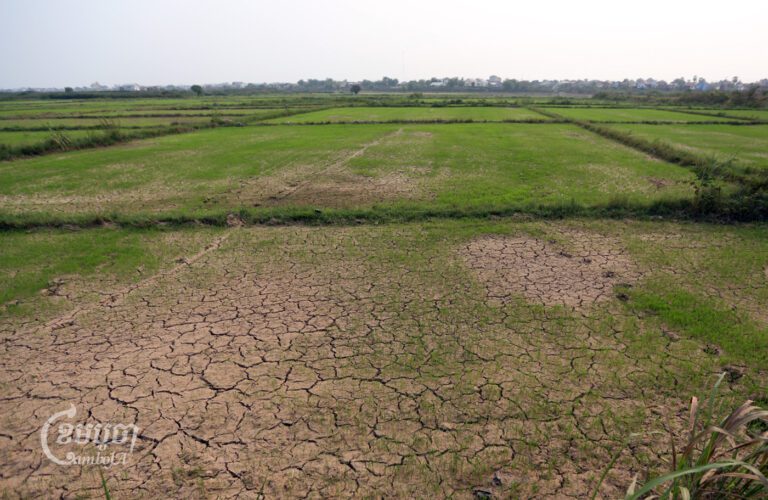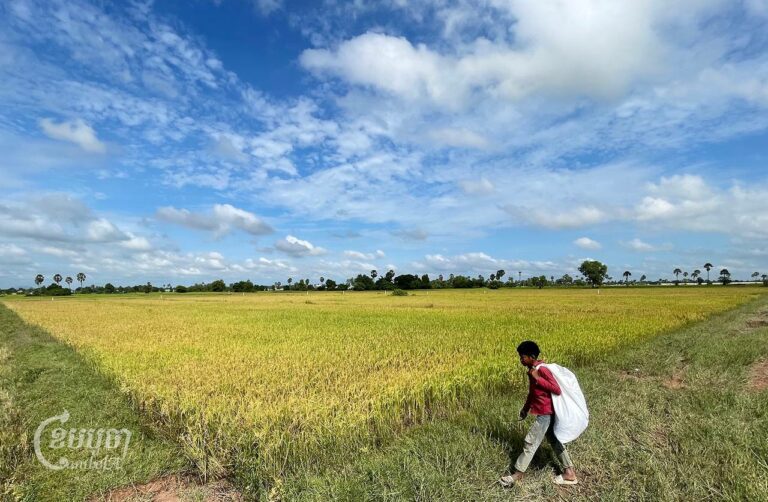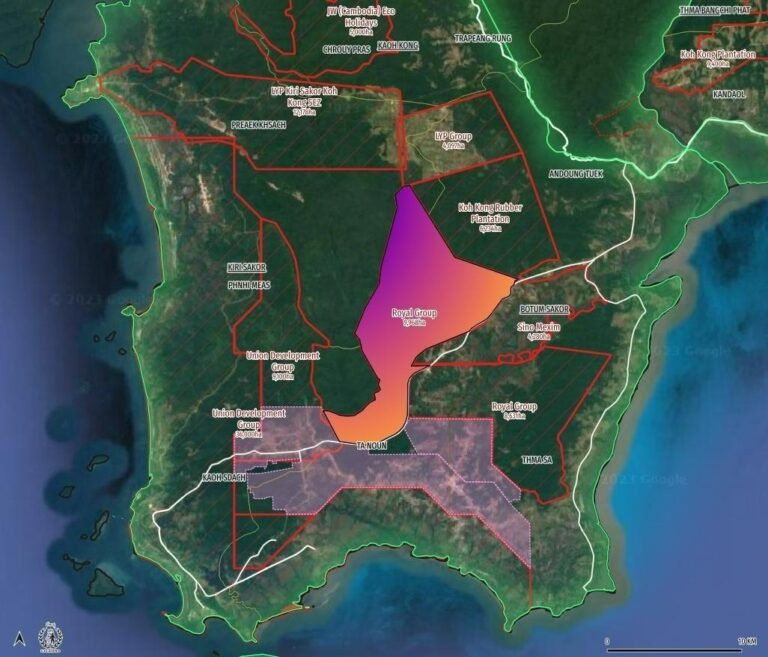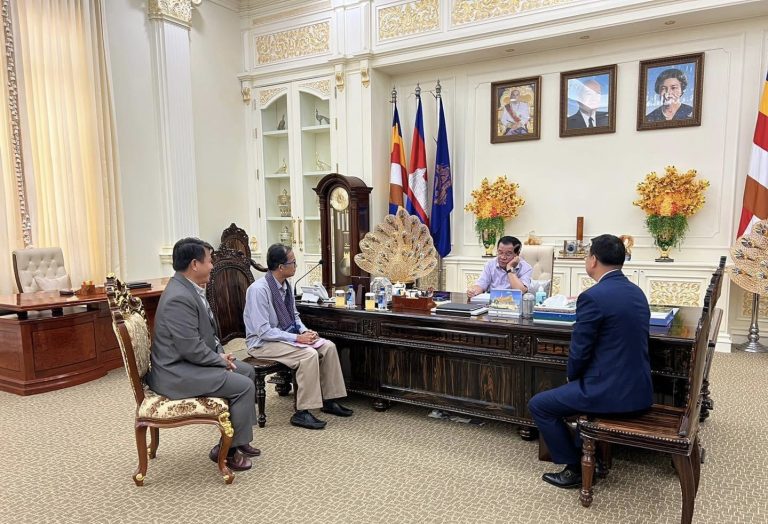Chhim San, 71, is a blind farmer living in the Borei Cholsar district of Takeo province. Last year, he started growing vegetables without the use of chemical fertilizers with the help of a World Vision Cambodia project. Despite his disability, he has overcome challenges to fend for himself and inspire many more like him.
San has been participating in the Micro-Franchised Agriculture Service Expanded (MASE2) project, partly funded by the Australian government. He represents 25 to 30 percent of disabled farmers in this project.
‘’I decided to join the MASE2 project with the hope of learning new agricultural techniques. I never let my disability disrupt me from acquiring all those new things,” he said. ‘’I used to do farming following the traditional way, but it did not work out and it cost a lot in production with low output.”
He said the project facilitates him with knowledge of modern agricultural techniques as well as technical equipment, including a spray tank, a net house, and natural fertilizer. This support has enabled him to grow vegetables that are healthier for consumption to increase his daily income.
‘’As of today, I grow beans, luffa gourds, eggplants, and wax gourds with no chemical fertilizer. And in a day, I can harvest ten kilograms of these vegetables, and a merchant is waiting to buy all of them. It is just easy like that,” he said.
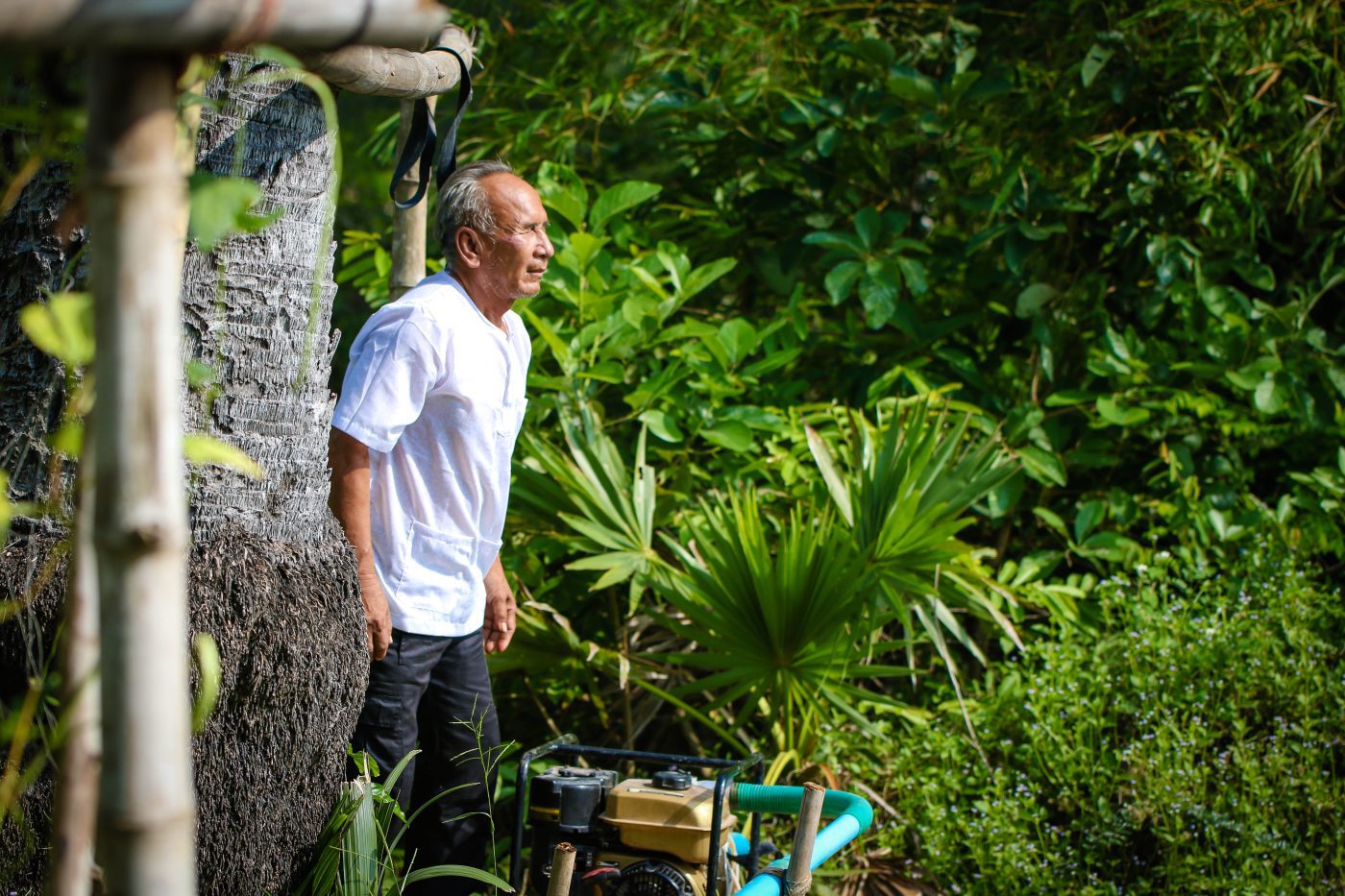
San became blind in both eyes when he was around ten years old. Despite this, he has found ways to adapt himself to the certain situation he lives in. ‘’Regular people still find it hard to learn and do this stuff, so I think it is even harder for me to do the same. However, I believe if there is a will, there is a way,” he said.
‘’I would like to encourage all farmers, specifically disabled people, to get involved in the agriculture sector. Do not let your disability traumatize you or stop you from unleashing your potential.”
Touch Pech, the president of the Svay Prateal agriculture community located in the Sa’ang district of Kandal province, told CamboJA that the community was established in 2015 with the aim to increase local farmers’ incomes by executing modern agricultural techniques. She said there were 65 members in the beginning, but now there are 371 and the vast majority are women.
‘’Throughout the seven years of work, we have seen a dramatic change in our community. People can now live in better conditions and earn a proper income by producing safe and mostly organic vegetables,” she said.
Pech said that as of today, the community continues to work with all farmers to ensure the quality of their products and to expand the scope of their work. With financial and technical support from the MASE2 project, she believes that this work can sustain and benefit many more local farmers, especially in the face of rapid climate change.
‘’The project also helps us find markets to sell our products to and that is a big relief for all farmers,” she said. Pech said the farmers need not worry about buyers as the community has signed contracts with six different companies that will buy all the vegetables produced by the communities.
‘’With 20 hectares of land in total, we can now produce around 500 to 600 kilograms of vegetables per day. And our products can be sold at a stable price, or sometimes even higher compared to others,” she said.
Before establishing this community, the farmers faced many emerging challenges – including rising production costs, the overuse of chemical fertilizers, and the lack of market linkage. ‘’But for now, we can see a lot of improvement, and their business is also more profitable,” she said.
Im Thano, senior manager of the five-year MASE2 project, told CamboJA, ‘’This project is a bit different compared to what we did previously. It mainly focuses on poor families, especially women and disabled people, by attracting them to get involved in the modern agricultural model and establish an entrepreneurial mindset.”
Thano said the project is now helping 5,502 families in the two provinces. He said that so far, MASE2 has accomplished crucial achievements in helping local poor farmers increase their incomes, especially when COVID-19 hit hard. ‘
“We guide them to grow what the market is needing,” he said. ‘’People normally grow what they want to grow and never think of market demand. This is so wrong. It causes them difficulties in selling their products.”
According to Thano, the MASE2 project is meant to end in late June. However, he said, ‘’After it finishes, we will have another five-year project (2023-2027) to work on, but we do not know where it will be implemented yet.”
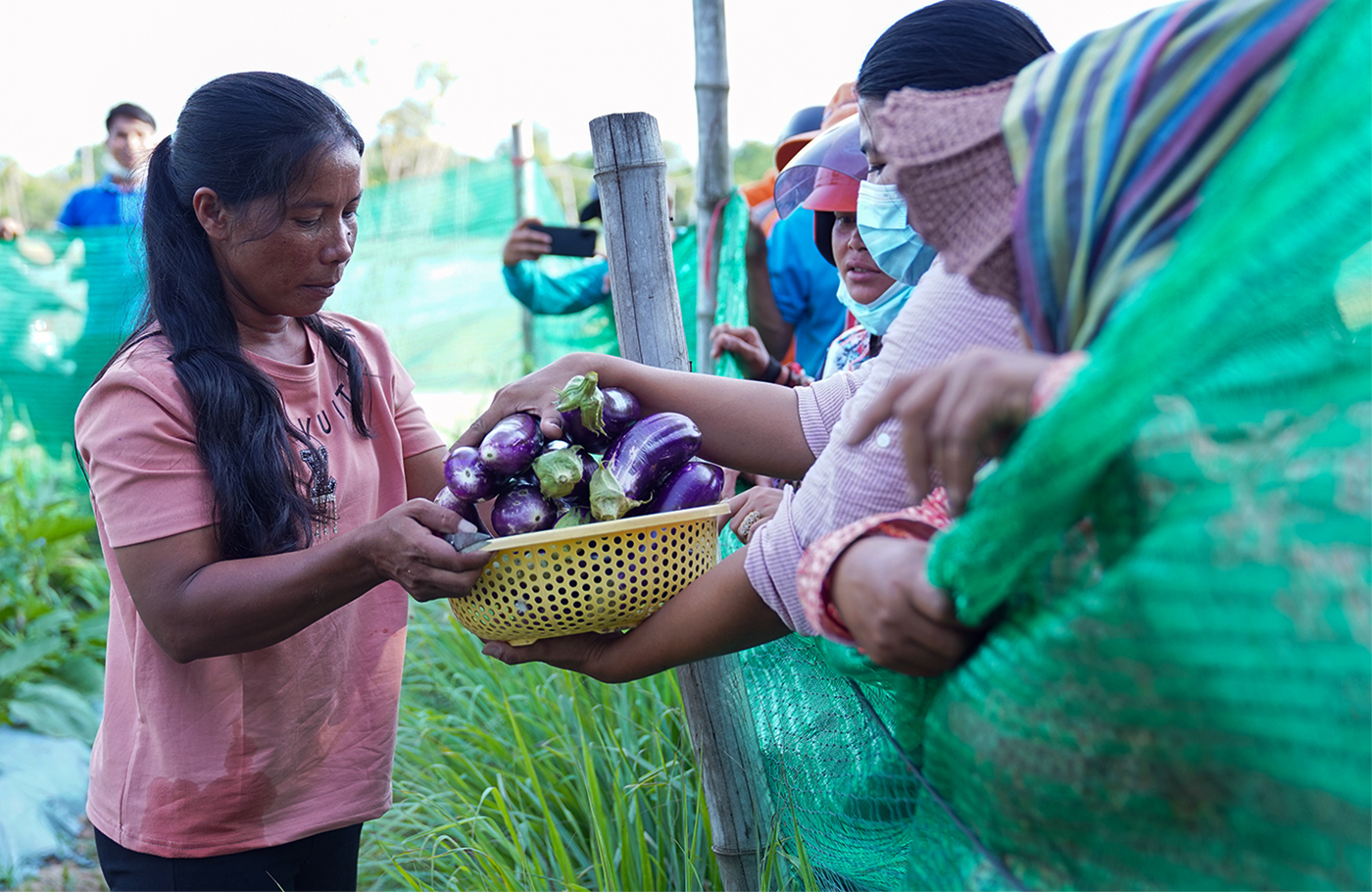
Yang Saing Koma, an agriculture expert, told CamboJA that there is an emerging trend of growing organic vegetables in Cambodia. However, there is not a holistic program implemented across the country to help the farmers, only piecemeal projects supported by NGOs in certain provinces.
‘’This is a weak point that has yet to be solved. With this, I think the market linkage is still also a crucial challenge for Cambodian farmers to sell out their products,” he said.
According to Saing Koma, Cambodia still largely depends on vegetables imported from neighboring countries.
Srey Vuthy, spokesman of the Ministry of Agriculture, Forestry, and Fisheries, told CamboJA that the ministry has been pushing for a strategy to reduce the inflow of agricultural products by strengthening the competitiveness of its agricultural products in the domestic market.
‘’The current investments are being implemented to strengthen the overall value chain, which aims to lead to production with high quality, safety, hygienic and phytosanitary standards, and price competition,” he said.


